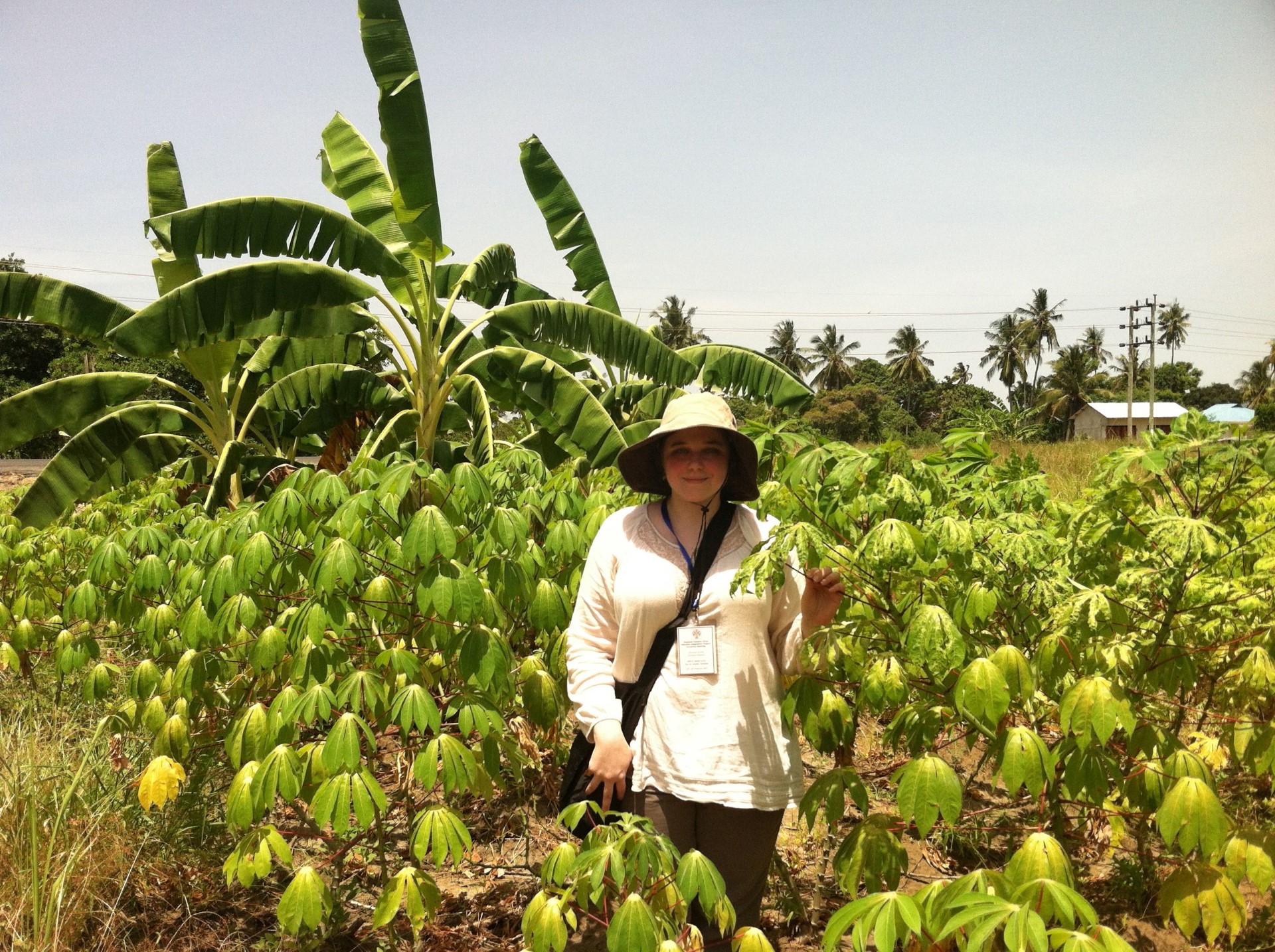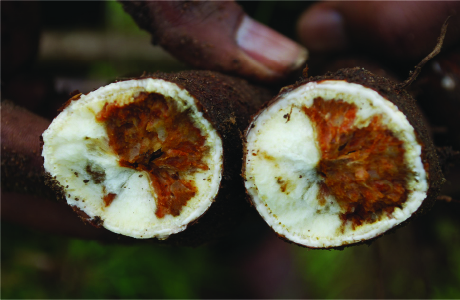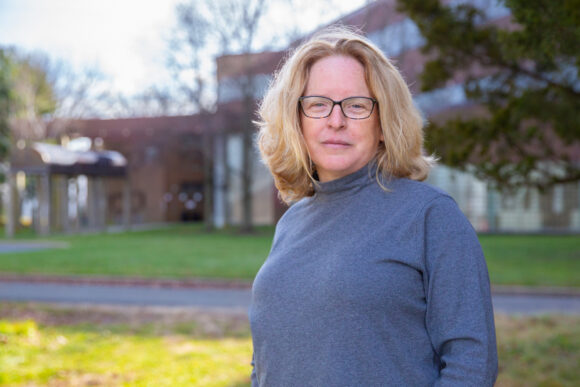
Siobain Duffy holding a cassava plant infected with brown streak disease while in a field of healthy cassava. Courtesy of Siobain Duffy.
Siobain Duffy, professor and chair of the Department of Ecology, Evolution, and Natural Resources at Rutgers School of Environmental and Biological Sciences (SEBS), is the principal investigator for a $2.18 million grant in Ecology and Evolution of Infectious Diseases awarded by the National Science Foundation. Duffy and researchers at North Carolina State University, the International Institute for Tropical Agriculture, the University of Manchester and Rothamsted Research in the United Kingdom are working on researching, measuring, and modeling the spread of brown streak disease in the cassava plant found in Tanzania.
Cassava brown streak disease is virtually undetectable above ground, destroying the roots from the inside out, destroying entire harvests without the farmers’ knowledge, and threatening food security. Infected plants are quickly detected using a newly developed multispectral imager (MSI) technology created by engineers at the University of Manchester. Duffy’s specific objective with this study is to understand how brown streak moves through a field, which will greatly improve upon the limited epidemiological knowledge of the disease and prevent its spread to West Africa.

Cassava brown streak disease in cassava.
Duffy’s lab at SEBS studies the evolution of fast-evolving RNA and single-stranded DNA viruses, both threatening biosecurity and food security. Duffy is furthering her research on the spread of these RNA viruses in cassava with the grant’s funding, which complements her existing research on single-stranded DNA viruses that infect cassava.
The research funded by the grant is an extension of a long-term collaboration between Duffy and Linda Hanley-Bowdoin, the co-principal investigator and initial contact with the University of Manchester team.
Duffy spoke of the rewarding aspects of her research on cassava brown streak disease. “I’m happy to see a relationship that I’ve had for close to fifteen years growing, expanding, and involving new researchers. For researchers who are interested in the same systems, it’s nice to have a formal way to work with them. We’re all trying to make sure people have access to enough calories.”

Julie Lockwood. Photo credit: Jacqueline Robinson.
Another researcher previously awarded a grant by the National Science Foundation is Julie Lockwood, an ecologist, professor in the Department of Ecology, Evolution, and Natural Resources at Rutgers University, and the director of the Institute of Earth, Ocean, and Atmospheric Sciences. Lockwood is currently working on characterizing the pet amphibian trade within the United States and the spread of disease among these amphibians. Using information from an extensive U.S. Fish and Wildlife Service database on all the animals imported into the country, the funding has allowed Lockwood and her collaborators to consolidate the data and further characterize the amphibian pet trade.
Both Duffy and Lockwood have long, impressive careers at SEBS and are just two of the women who have received grants from the National Science Foundation for their research in the spread of infectious diseases. Lockwood describes her experience as a woman in this field as being the recipient of “bad behavior,” especially at the beginning of her career. However, exercising her agency over the years and having support from the university and regional networks has helped tremendously. “Nothing was so egregious that it changed my trajectory, but every once in a while, you see moments of subtle misogyny.”
Duffy connected her own experience as a woman in science to her current research in East Africa, saying, “The women I talk to in Africa don’t feel any of the hidden, undercurrent slights that sometimes happen as American women climb the ranks in academia or science. It’s much more credential-driven.”
She explained how lucky she feels that her department is at least half female, although it’s not something she thinks to check, even as the department chair.
“Our department reflects the gender diversity of the field, and SEBS has been a supportive place to work as a woman in science.”
This article was written by OPOC intern Emily Ranieri.

